Program
Jump to a specific Day | ||||
|---|---|---|---|---|
| (Day 1) | (Day 2) | (Day 3) | (Day 4) | (Day 5) |
(Day 1) |
|
|---|---|
| 1330-1630 |
Board of Directors MeetingBoard Members Only |
(Day 2) |
|
|---|---|
| 0830-1630 |
Board of Directors MeetingBoard Members Only |
(Day 3) |
|
|---|---|
| 0730-0900 |
The Challenges of Flexible Endoscope CleaningBreakfast with Steris |
| 0800-0900 |
Registration |
| 0900-0915 |
Opening CeremoniesLand acknowledgement |
| 0915-1015 |
Speaker TBCOpening Keynote |
| 1015-1035 |
Nutrition Break |
| 1035-1120 | Concurrent Session 1AWorkshopConcurrent Session 1BWorkshop |
| 1120-1125 |
Transition Break |
| 1125-1210 | Concurrent Session 2AWorkshopConcurrent Session 2BWorkshop |
| 1210-1310 |
Lunch |
| 1310-1355 | Concurrent Session 3AWorkshopConcurrent Session 3BWorkshop |
| 1355-1400 |
Transition |
| 1400-1445 | Concurrent Session 4AWorkshopConcurrent Session 4BWorkshop |
| 1445-1505 |
Quick Nutrition Break |
| 1505-1550 | Concurrent Session 5BWorkshopConcurrent Session 5AWorkshop |
| 1550-1555 |
Transition |
| 1600-1700 |
Speaker TBCKeynote |
| 1700-2030 |
Registration |
| 1705-1710 |
Transition to Exhibit Hall |
| 1710-1900 |
Exhibitor's Welcome ReceptionExhibit Hall |
| 1900 |
Free time - No Host Dinner |
(Day 4) |
|
|---|---|
| 0700-0745 |
Registration(Continental breakfast provided) |
| 0745-0800 |
Quick Plenary Housekeeping |
| 0800-0825 |
Vendors Hands On |
| 0825-0830 |
Transition |
| 0830-0855 |
Vendors Hands On |
| 0855-0900 |
Transition |
| 0900-0925 |
Vendors Hands On |
| 0925-0930 |
Transition |
| 0930-0955 |
Vendors Hands On |
| 0955-1025 |
Break in Exhibit Hall |
| 1025-1050 |
Vendors Hands On |
| 1050-1055 |
Transition |
| 1055-1120 |
Vendors Hands On |
| 1120-1125 |
Transition |
| 1125-1150 |
Vendors Hands On |
| 1150-1300 |
Lunch in the Exhibit Hall |
| 1300-1325 |
Vendors Hands On |
| 1325-1330 |
Transition |
| 1330-1355 |
Vendors Hands On |
| 1355-1400 |
Transition |
| 1400-1425 |
Vendors Hands On |
| 1425-1430 |
Transition |
| 1430-1455 |
Vendors Hands On |
| 1455-1525 |
Break in Exhibit Hall |
| 1525-1550 |
Vendors Hands On |
| 1550-1555 |
Transition |
| 1555-1620 |
Vendors Hands On |
| 1620-1625 |
Transition |
| 1625-1650 |
Vendors Hands On |
| 1650-1655 |
Transition to plenary |
| 1655-1720 |
Sponsored session |
| 1720-1730 |
Quick Plenary Housekeeping |
| 1730-1900 |
Float & Promote SocialExhibit Hall |
| 1900-2100 |
No Host Dinner(free time after the social) |
(Day 5) |
|
|---|---|
| 0800-0900 | Continental BreakfastCSGNA Leaders BreakfastInvitation Only
Open to any Chapter Executives
|
| 0900-0945 |
Plenary SessionPlenary |
| 0945-1015 |
2024 CSGNA Annual General Meeting |
| 1015-1045 |
plenary Sessionplenary |
| 1045-1115 |
Nutritional Break |
| 1115-1215 |
Speaker TBCPlenary |
| 1215-1245 |
Speaker TBCPlenary |
| 1245-1300 |
Closing Ceremony |

Catherine MacNeil
Registered Nurse/authorMy name is Catherine MacNeil. I've been a registered nurse/healthcare researcher for forty-seven years. Ive been an ICU nurse, nurse manager, nursing supervisor and educator. I'm semi retired but still teach continuing care assistants at a local career college. I recently authored a new book entitled:Dying to be Seen:The Race to Save Medicare in Canada. The book is written and edited by nurses. It outlines the urgency of fighting to preserve our public health care system and to prevent it from being privatized. The book outlines the origins of Medicare's decline and concrete steps that must be taken to save it. The book has been a number one best seller for months on Amazon, both in the Medicare genre and the Health Policy Administration genre since it's release in January /23.
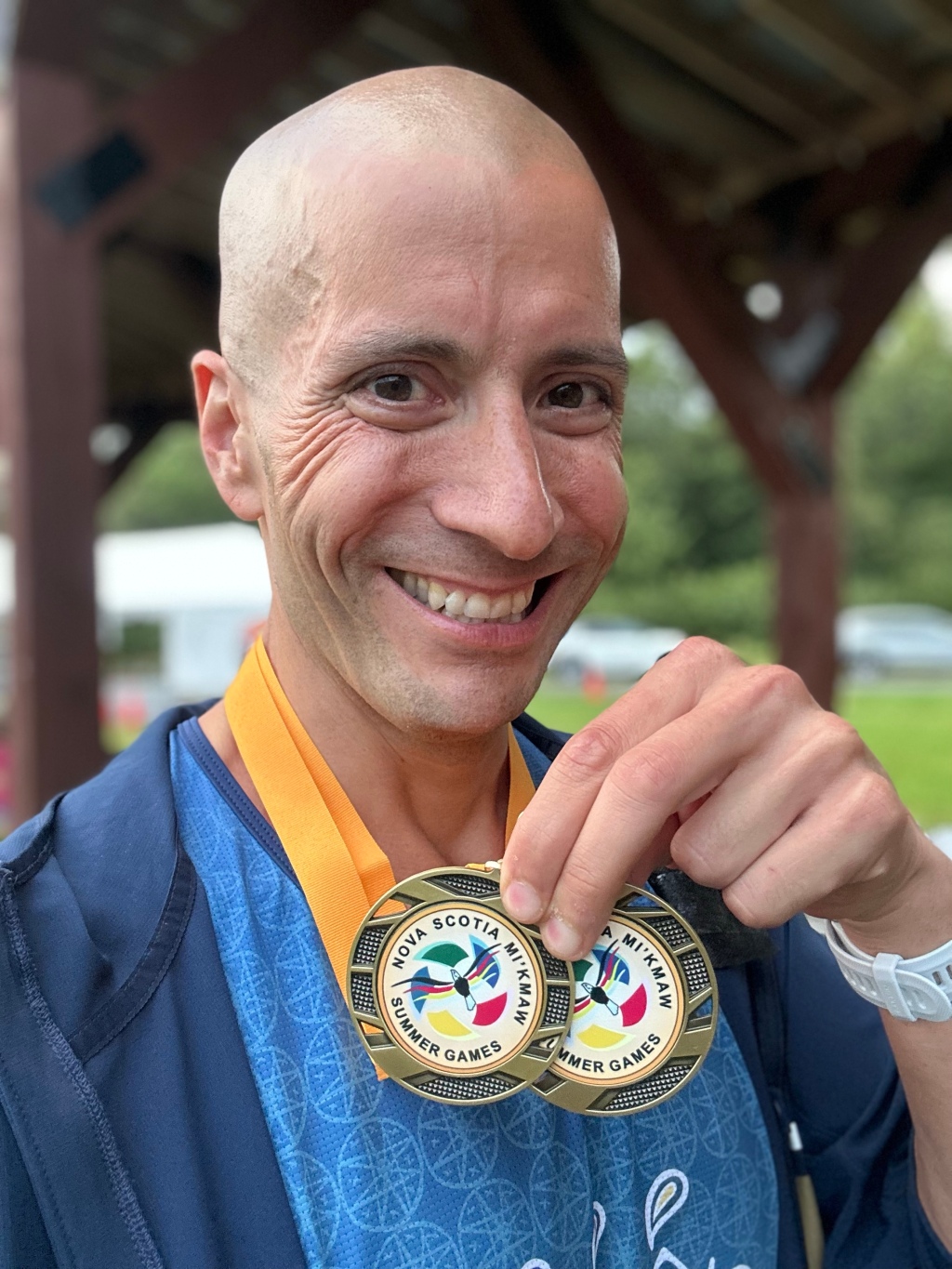
Jarvis Googoo
Keynote speakerA Mi'kmaw (Wetapeksi We'koqma'q aq Tleyawi Kjipuktuk) with a passion for running, yoga, healthy living, Indigenous rights, and the environment. Jarvis was raised in We'koqma'q, Unama'kik, attended an Indian Day School from 1985 to 1993, and graduated from a Mi'kmaw Kina'matnewey school. He holds degrees from Saint Mary's University (cum laude), Dalhousie Law School, and is a non-practicing member of the Nova Scotia Barristers' Society.
He has spoken and presented on Mi'kmaw history and culture, Peace and Friendship, and Truth and Reconciliation to numerous audiences. These include Dalhousie Law School and Medical School, the Nova Scotia Physiotherapy Association, churches, schools, Girl Guides of Canada and Scouts Canada, and to regional and national media outlets. In 2022, he received the Queen's Platinum Jubilee Medal.
Dalhousie University

Dr. Chadwick Williams MD FRCSC
Chadwick "Chad" Williams is an Assistant Professor of Medicine at Dalhousie University and a Gastroenterologist and Inflammatory Bowel Disease Specialist at Dartmouth General Hospital in Dartmouth, NS. Dr. Williams completed his BSc and MD degrees at Dalhousie University prior to completing Internal Medicine and GI residencies at the University of Calgary. He completed an IBD fellowship at Cedars-Sinai Medical Center, Los Angeles CA. Dr. Williams is a member of several organizations including the RCPSC, CAG, and AGA. He is currently the Internal Medicine Site Lead and the Endoscopy Site Lead at the Dartmouth General Hospital. Dr. Williams is the current chair of the CAG Diversity, Equity and Inclusion subcommittee. Moreover, Chad is a proud African Nova Scotian with his forbearers having come to Nova Scotia over 400 years ago through the fall out of the American (and Canadian) trading of enslaved Africans.
Disclosures:
Abbvie, Janssen, Pfizer, Takeda -Speaker & Advisory Board Member
Janssen -Primary Investigator

Dr. Geoffrey Turnbull Professor of Medicine (retired)
Dr. Turnbull did his medical degree at Queen's University in Kingston, Ontario and then completed his Internal Medicine and Gastroenterology residencies at University of Western Ontario and Dalhousie University then completed another 2 years of training in Gastroenterology at St. Mark's Hospital in London, UK. He retired as Professor of Medicine from Dalhousie University in 2020 after 35 years of practice.
Disclosures:
Novagevity -Member of the Scientific Advisory Committee
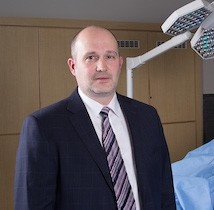
Dr. Christopher Kenyon MD FRCSC
Assistant Professor and Associate Program DirectorDr. Kenyon is an assistant professor of surgery at Dalhousie University in the Division of General Surgery with a fellowship in Colon and Rectal Surgery. He completed Medical School and General Surgery Residency at Dalhousie University and subsequently completed fellowship training in Colon and Rectal surgery at the University of Calgary. He has been an attending physician in both Saskatoon at the University of Saskatchewan and most recently at Dalhousie University.
His interests include measuring quality of colonoscopy performance, surgical management of Inflammatory Bowel Diseases, and resident education. He is the assistant Program Director for General Surgery Residency at Dalhousie University and is the Vice chair for the Surgical Foundations Test Committee of the Royal College of Physicians and Surgeons of Canada. He is the father to two girls and two dogs!

Jim Ellsmere MD MS FRCSC FACS
Associate Professor and Division HeadJames Ellsmere MD MSc FRCSC FACS is the head of the Division of General and Gastrointestinal Surgery at the QEII Health Sciences Centre where he also serves as the co-director of the Nova Scotia Health Bariatric program and the director of the Minimally Invasive Surgery fellowship. He is an associate professor of surgery at Dalhousie University. He received his electrical engineering degree, medical degree and surgery residency from Dalhousie and clinical fellowships in Minimally Invasive Surgery and Therapeutic Endoscopy from Harvard Medical School. He also received a Masters in Medical Informatics from the Massachusetts Institute of Technology. His research program is focused on developing and evaluating novel techniques to improve the management of gastrointestinal and metabolic disease.
Disclosures:
Consultant: Pendopharm, Gore Medical
Education and research support: GI Windows, Medtronic
Matt Miles Gastroenterologist
I grew up in Victoria and attended the University of British Columbia for medical school before moving to the east coast for residency. I completed internal medicine and gastroenterology residency at Dalhousie University. I then completed a motility and nutrition fellowship at the University of Calgary. I am now working as a gastroenterologist in the Division of Digestive Care and Endoscopy at the QEII in Halifax where I am acting as director of the Halifax motility program and the Nova Scotia home parenteral nutrition program.
Dr. Rachel Chan
Dr. Rachael Chan is a fifth year Gastroenterology Fellow at Dalhousie University in Halifax. She completed Internal Medicine training at Dalhousie University's Saint John, NB site and obtained her medical degree from the University of Calgary.
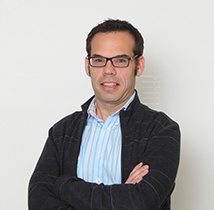
Dr. Dana Farina MD, FRCPC, CAGF
Associate professorDr. Dana Farina completed his medical degree at Memorial University of Newfoundland. He then did his Internal Medicine Residency, Gastroenterology Residency, and ERCP fellowship at Dalhousie University. His subspecialty areas of interest include chronic pancreatitis, spyglass cholangioscopy for hilar/intrahepatic biliary malignancy, and advanced polypectomy. Dr. Farina continues to be heavily involved in Endoscopy education. He has been part of the CAG Skills Enhancement for Endoscopy™ (SEE™) Faculty since its conception, being involved also as faculty at the CAG polypectomy course. Dr. Farina currently serves as the Chair of the Royal College GI exam board, and as a lecturer and clinical teacher at Dalhousie Medical School for medical students, residents, and fellows. Locally, he serves as the Central Zone Endoscopy Co-Lead.

Dr. Simon Houston
Dr. Simon Houston is a Respirologist at the QE-II Health Sciences Centre in Halifax, Nova Scotia, and is an Associate Professor of Medicine at Dalhousie University. He is cross appointed to the division of Thoracic Surgery. He is the Medical Director for the Endobronchial Ultrasound (EBUS) Service. His clinical focus is Interventional Pulmonology. Dr. Houston graduated from Queen's University School of Medicine in 2009. He then did his Internal Medicine and Respirology residencies at the University of Toronto. He completed a fellowship in Interventional Thoracic Surgery at the Toronto General Hospital, University Health Network, University of Toronto, and is certified in Interventional Pulmonology through the American Association for Bronchology and Interventional Pulmonology. He has a Master of Science in Community Health â€" Health Practitioner Teacher Education through the Dalla Lana School of Public Health, University of Toronto.
Dr. Ali Kohansal MD, FRCPC
Assistant professorDr. Ali Kohansal obtained his medical degree at Flinders University, Adelaide, South Australia. He then did residency in Internal Medicine at the University of Alberta and Gastroenterology training at Dalhousie University, Halifax, Nova Scotia. He completed his Therapeutic Endoscopy training at the University of Alberta, while completing a Master of Education at Acadia University. Dr. Kohansal's clinical areas of interest include ERCP, Endoscopic Ultrasound, advanced polypectomy, enteral stenting for malignant and non-malignant strictures, and quality and training in endoscopy. Dr. Kohansal previously held an academic appointment at University of Alberta before moving home to Dalhousie University in 2019. Dr. Kohansal is the Program Director of the Advanced Therapeutic Endoscopy Fellowship program and the Assistant Program Director of the core GI training program at Dalhousie University.
Disclosures:
Janssen INC: advisory board

Dr. Geoff Williams MD, FRCPC, CAGF
Associate professorDr. Williams completed his Medical Degree at Memorial University in 2002, followed by Internal Medicine and Gastroenterology residency training at Dalhousie University. He did a fellowship in Therapeutic Endoscopy at the University of Calgary in 2008 and then returned to Dalhousie University and became a full time academic clinician. He is currently an Associate Professor of Medicine, with clinical focus in Pancreaticobiliary disease, therapeutic endoscopy and an academic focus in education administration.
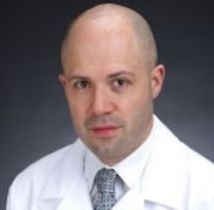
Dr. Danny French MD, FRCSC
Assistant Professor of Surgery, Division of Thoracic SurgeryDr. French is a thoracic surgeon and assistant professor at the Queen Elizabeth II Hospital and Dalhousie University in Halifax, Nova Scotia, Canada. He completed a Bachelor of Engineering degree at Dalhousie University, followed by a Masters of Applied Science and Doctor of Medicine degrees at the University of British Columbia. His surgical training includes completing the general surgery residency program at Dalhousie University and a thoracic surgery residency program at the University of Ottawa. His clinical and research interests are focused on quality outcomes for thoracic malignancies. He has been a trauma team leader since 2017 at the QEII in Halifax. He co-chairs the Nova Scotia Thoracic Tumor Board, chairs the Canadian Association of Thoracic Surgeons National Quality Improvement Committee and is a member of the Beatrice Hunter Cancer Research Institute and the Nova Scotia Lung Association Medical Advisory Committee.
Disclosures:
AstroZenca : consultant
Nova Scotia Lung Association: member of medical advisory committee
Funded grants or clinical trials: consultant

Laurette Geldenhuys MBBCH, FFPATH, MMED, FRCPC, MAEd, FCAP
Laurette was trained in South Africa, has master's degrees in Anatomical Pathology and Medical Education, and is a Professor at Dalhousie University in Nephropathology. She is a former Division Head of Anatomical Pathology at Nova Scotia Health, and is a Past President of the Canadian Association of Pathologists (CAP-ACP), Chair of the CAP-ACP National Specialty Network on the Environment, Secretary of the Doctors NS Section on Planetary Health, Chair of the Nova Scotia Regional Committee of the Canadian Association of Physicians for the Environment (CAPE NS), and member of the Lab Green Team, the Board of CAPE, the Board of the Ecology Action Centre, and St. Matthew's United Church Earth Spirit Action Team. She is interested in the greening of health care, the health effects of the climate emergency, and the beneficial health effects of spending time in nature. Her three lovey daughters, her two adorable grandsons, and her love of nature inspire her in her planetary health advocacy.
Dartmouth General Hospital
Dr. Riley Stewart
Dr. Riley Stewart practices General Surgery and therapeutic endoscopy at Dartmouth General Hospital in Dartmouth, Nova Scotia. He completed his medical school and residency training in General Surgery at Dalhousie University. He has fellowship training in minimally invasive surgery and therapeutic endoscopy from Dalhousie University and Harvard.
Disclosures:
Medtronic -Speaking Honorarium
Department Of Medicine

Dr. Dana Farina MD, FRCPC, CAGF
Associate professorDr. Dana Farina completed his medical degree at Memorial University of Newfoundland. He then did his Internal Medicine Residency, Gastroenterology Residency, and ERCP fellowship at Dalhousie University. His subspecialty areas of interest include chronic pancreatitis, spyglass cholangioscopy for hilar/intrahepatic biliary malignancy, and advanced polypectomy. Dr. Farina continues to be heavily involved in Endoscopy education. He has been part of the CAG Skills Enhancement for Endoscopy™ (SEE™) Faculty since its conception, being involved also as faculty at the CAG polypectomy course. Dr. Farina currently serves as the Chair of the Royal College GI exam board, and as a lecturer and clinical teacher at Dalhousie Medical School for medical students, residents, and fellows. Locally, he serves as the Central Zone Endoscopy Co-Lead.
Dr. Ali Kohansal MD, FRCPC
Assistant professorDr. Ali Kohansal obtained his medical degree at Flinders University, Adelaide, South Australia. He then did residency in Internal Medicine at the University of Alberta and Gastroenterology training at Dalhousie University, Halifax, Nova Scotia. He completed his Therapeutic Endoscopy training at the University of Alberta, while completing a Master of Education at Acadia University. Dr. Kohansal's clinical areas of interest include ERCP, Endoscopic Ultrasound, advanced polypectomy, enteral stenting for malignant and non-malignant strictures, and quality and training in endoscopy. Dr. Kohansal previously held an academic appointment at University of Alberta before moving home to Dalhousie University in 2019. Dr. Kohansal is the Program Director of the Advanced Therapeutic Endoscopy Fellowship program and the Assistant Program Director of the core GI training program at Dalhousie University.
Disclosures:
Janssen INC: advisory board

Dr. Geoff Williams MD, FRCPC, CAGF
Associate professorDr. Williams completed his Medical Degree at Memorial University in 2002, followed by Internal Medicine and Gastroenterology residency training at Dalhousie University. He did a fellowship in Therapeutic Endoscopy at the University of Calgary in 2008 and then returned to Dalhousie University and became a full time academic clinician. He is currently an Associate Professor of Medicine, with clinical focus in Pancreaticobiliary disease, therapeutic endoscopy and an academic focus in education administration.
Department Of Pathology

Laurette Geldenhuys MBBCH, FFPATH, MMED, FRCPC, MAEd, FCAP
Laurette was trained in South Africa, has master's degrees in Anatomical Pathology and Medical Education, and is a Professor at Dalhousie University in Nephropathology. She is a former Division Head of Anatomical Pathology at Nova Scotia Health, and is a Past President of the Canadian Association of Pathologists (CAP-ACP), Chair of the CAP-ACP National Specialty Network on the Environment, Secretary of the Doctors NS Section on Planetary Health, Chair of the Nova Scotia Regional Committee of the Canadian Association of Physicians for the Environment (CAPE NS), and member of the Lab Green Team, the Board of CAPE, the Board of the Ecology Action Centre, and St. Matthew's United Church Earth Spirit Action Team. She is interested in the greening of health care, the health effects of the climate emergency, and the beneficial health effects of spending time in nature. Her three lovey daughters, her two adorable grandsons, and her love of nature inspire her in her planetary health advocacy.
Division Of Digestive Care & Endoscopy

Dr. Dana Farina MD, FRCPC, CAGF
Associate professorDr. Dana Farina completed his medical degree at Memorial University of Newfoundland. He then did his Internal Medicine Residency, Gastroenterology Residency, and ERCP fellowship at Dalhousie University. His subspecialty areas of interest include chronic pancreatitis, spyglass cholangioscopy for hilar/intrahepatic biliary malignancy, and advanced polypectomy. Dr. Farina continues to be heavily involved in Endoscopy education. He has been part of the CAG Skills Enhancement for Endoscopy™ (SEE™) Faculty since its conception, being involved also as faculty at the CAG polypectomy course. Dr. Farina currently serves as the Chair of the Royal College GI exam board, and as a lecturer and clinical teacher at Dalhousie Medical School for medical students, residents, and fellows. Locally, he serves as the Central Zone Endoscopy Co-Lead.
Dr. Ali Kohansal MD, FRCPC
Assistant professorDr. Ali Kohansal obtained his medical degree at Flinders University, Adelaide, South Australia. He then did residency in Internal Medicine at the University of Alberta and Gastroenterology training at Dalhousie University, Halifax, Nova Scotia. He completed his Therapeutic Endoscopy training at the University of Alberta, while completing a Master of Education at Acadia University. Dr. Kohansal's clinical areas of interest include ERCP, Endoscopic Ultrasound, advanced polypectomy, enteral stenting for malignant and non-malignant strictures, and quality and training in endoscopy. Dr. Kohansal previously held an academic appointment at University of Alberta before moving home to Dalhousie University in 2019. Dr. Kohansal is the Program Director of the Advanced Therapeutic Endoscopy Fellowship program and the Assistant Program Director of the core GI training program at Dalhousie University.
Disclosures:
Janssen INC: advisory board

Dr. Geoff Williams MD, FRCPC, CAGF
Associate professorDr. Williams completed his Medical Degree at Memorial University in 2002, followed by Internal Medicine and Gastroenterology residency training at Dalhousie University. He did a fellowship in Therapeutic Endoscopy at the University of Calgary in 2008 and then returned to Dalhousie University and became a full time academic clinician. He is currently an Associate Professor of Medicine, with clinical focus in Pancreaticobiliary disease, therapeutic endoscopy and an academic focus in education administration.
Division Of General And Gastrointestinal Surgery

Dr. Christopher Kenyon MD FRCSC
Assistant Professor and Associate Program DirectorDr. Kenyon is an assistant professor of surgery at Dalhousie University in the Division of General Surgery with a fellowship in Colon and Rectal Surgery. He completed Medical School and General Surgery Residency at Dalhousie University and subsequently completed fellowship training in Colon and Rectal surgery at the University of Calgary. He has been an attending physician in both Saskatoon at the University of Saskatchewan and most recently at Dalhousie University.
His interests include measuring quality of colonoscopy performance, surgical management of Inflammatory Bowel Diseases, and resident education. He is the assistant Program Director for General Surgery Residency at Dalhousie University and is the Vice chair for the Surgical Foundations Test Committee of the Royal College of Physicians and Surgeons of Canada. He is the father to two girls and two dogs!

Jim Ellsmere MD MS FRCSC FACS
Associate Professor and Division HeadJames Ellsmere MD MSc FRCSC FACS is the head of the Division of General and Gastrointestinal Surgery at the QEII Health Sciences Centre where he also serves as the co-director of the Nova Scotia Health Bariatric program and the director of the Minimally Invasive Surgery fellowship. He is an associate professor of surgery at Dalhousie University. He received his electrical engineering degree, medical degree and surgery residency from Dalhousie and clinical fellowships in Minimally Invasive Surgery and Therapeutic Endoscopy from Harvard Medical School. He also received a Masters in Medical Informatics from the Massachusetts Institute of Technology. His research program is focused on developing and evaluating novel techniques to improve the management of gastrointestinal and metabolic disease.
Disclosures:
Consultant: Pendopharm, Gore Medical
Education and research support: GI Windows, Medtronic
Healthmark Industries

Dr. Mary Ann Drosnock Director, Clinical Affairs
Dr. Mary Ann Drosnock is the Director of Clinical Affairs at Healthmark Industries, where she leads a team of clinical educators with expertise in device processing and infection prevention. Mary Ann is a well-known speaker at professional society meetings around the world on endoscope processing and infection prevention topics. She served as co-chair of AAMI Working Group 84 for ST91 from 2013 to 2021. Before Healthmark, she managed the Infection Control Program for Olympus, worked as a pharmaceutical microbiologist, and taught Microbiology courses at the college level to healthcare professionals. Mary Ann has a B.S. in Biology from Albright College, an M.S. in Quality Assurance and Regulatory Affairs from Temple, and a Doctorate in Health Science from East Stroudsburg University. She is certified in Infection Control and Endoscope Reprocessing and is a Fellow for APIC and AAMI.
Disclosures:
Healthmark Industries -Employee
QEII (NS Health)
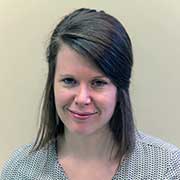
Jessica Robar RN MN CGN(c)
IBD Nurse NavigatorJessica graduated from St. FX in 2006 with her BScN and completed her Masters of Nursing in 2015 at Memorial. She worked in different areas of nursing including emergency and endoscopy until 2016 when she took on the role of IBD Nurse Navigator at the QEII (NS Health). When she's not working she enjoys spending time camping and paddleboarding on the lake with her two daughters and husband.
Disclosures:
Amgen, Abbvie, Jamp -advisory board member
STERIS Canada Sales ULC

Manon Laflamme
Clinical Education SpecialistManon Laflamme joined the STERIS team in 2017 as the Clinical Education Specialist for Eastern Canada. She began her career in 1988 at the Ottawa Hospital as a Medical Device Reprocessing Tech and became Supervisor. In 2005, Manon moves to Vancouver Island and is recruited to develop the Endoscope Reprocessing Manual for the Island Health aka at the time as VIHA. She offers 35 years of experience in Medical Device Reprocessing. She is Medical Device Reprocessing certified through HSPA, Quality Improvement Associate certified through ASP and Yellow Belt Six Sigma certified through ASP. Manon's focus is to engage, collaborate and assist healthcare professionals improve their processes and identify improvement opportunities all aspect of Reusable Medical Device Reprocessing.
Disclosures:
STERIS -Employee
School Of Biomedical Engineering

Jim Ellsmere MD MS FRCSC FACS
Associate Professor and Division HeadJames Ellsmere MD MSc FRCSC FACS is the head of the Division of General and Gastrointestinal Surgery at the QEII Health Sciences Centre where he also serves as the co-director of the Nova Scotia Health Bariatric program and the director of the Minimally Invasive Surgery fellowship. He is an associate professor of surgery at Dalhousie University. He received his electrical engineering degree, medical degree and surgery residency from Dalhousie and clinical fellowships in Minimally Invasive Surgery and Therapeutic Endoscopy from Harvard Medical School. He also received a Masters in Medical Informatics from the Massachusetts Institute of Technology. His research program is focused on developing and evaluating novel techniques to improve the management of gastrointestinal and metabolic disease.
Disclosures:
Consultant: Pendopharm, Gore Medical
Education and research support: GI Windows, Medtronic
